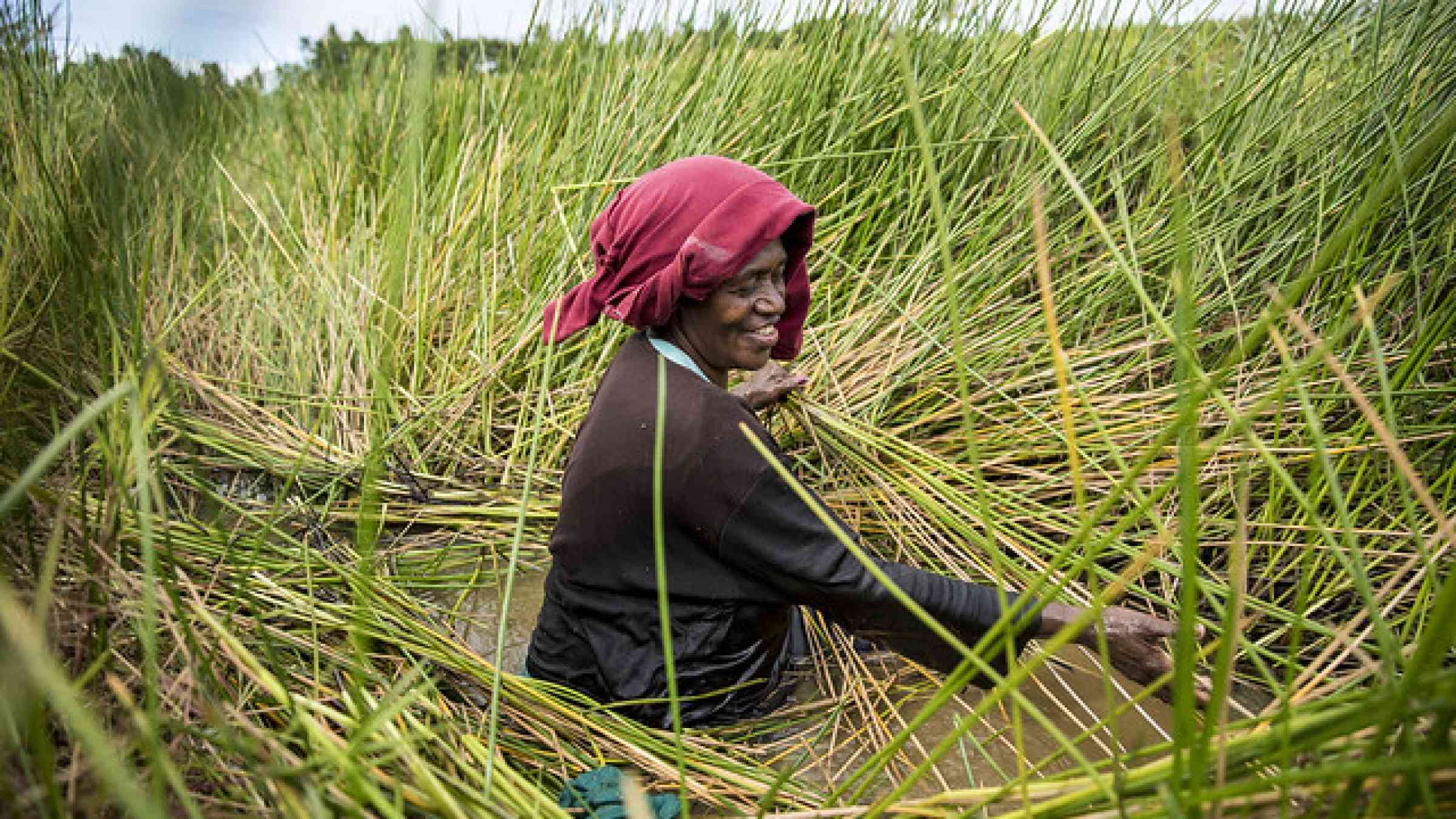An Inclusive Approach to Disaster Risk Financing - Learning from Local Experiences
Strengthening financial protection against disasters has been a part of ongoing discussions at Forum Economic Ministers Meetings, hence the establishment of a Disaster Risk Finance Technical Working Group (DRFTWG) to improve coordination and collaboration amongst regional partners working in this space. The United Nations Capital Development Fund (UNCDF) and the Pacific Catastrophe Risk Insurance Company (PCRIC) that are active members of the DRFTWG have been working with governments and communities in the region to offer micro, meso and macro financial solutions to address the negative impact of natural hazards such as cyclones, floods, and earthquakes which are prevalent in the Pacific. Vulnerable and low-income segments, especially women, persons with disabilities (PWDs), and micro, small, and medium enterprises are most affected due to lack of access to financial instruments that cover natural hazards and low levels of financial literacy.
Session Objectives:
- Offer insights into how different stakeholders can actively contribute in bolstering resilience measures for communities and governments.
- Discuss how DRF instruments can provide governments with alternatives to lower budgetary costs through risk transfer mechanisms.
- Present concrete examples of how DRF instruments at the micro, meso and macro levels in the Pacific region contribute to enhancing community resilience.
Expected Outcomes:
- Participants gain an understanding of how the market systems can be leveraged to cost-effectively support government and humanitarian actors quickly respond to the negative impacts of climate events through risk transfer mechanisms.
- Highlight the importance of the collaborative approach between UN Agencies, Pacific Disability Forum/Agri Agencies and the Private Sector to strengthen disaster resilience.
Pacific Island nations face significant risks from natural hazards due to their geographical isolation, fragile infrastructure, insufficient climate and disaster risk financing, and limited adaptation measures. Between 75 and 97% of the population in the Pacific Islands depend on agriculture for their livelihoods, with others engaged in informal sector work and home-based trading. Cyclones have been noted to cause the most extensive economic damage in the region, followed by excess rainfall, earthquakes, tsunamis, droughts, and volcanic eruptions, primarily affecting subsistence agriculture and thereby impacting people's livelihoods. These factors heighten the vulnerability of Pacific Islanders to natural disasters, particularly affecting women, those in the informal economy, the impoverished, and other marginalized groups (UNCDF, 2020).
UNCDF, over the last three years have built local ecosystems to sustainably offer suitable and affordable climate and disaster risk financing solutions targeting micro, meso and macro-micro level. Established groups such as agri-farmer agencies and the Pacific Disability Forum with presence in many Pacific countries have been leveraged off to create new business opportunities and to effectively reach large numbers who might not have taken up financial risk mitigation tools to strengthen their resilience toward natural hazards. Additionally, these platforms are used to build awareness around financial literacy, and climate and disaster risk financing instruments offered in the market. Similarly, engagements with other UN agencies with a conforming agenda of building resilience of vulnerable groups such as UN Women for Women Market Vendors, is a strategic way of effectively mobilizing resources to support women groups in strengthening their resilience measures.
PCRIC on the other hand, works to enhance the financial resilience of PICs against natural disasters, at the sovereign level by improving their capacity to meet post-disaster funding needs. It does this by providing bespoke insurance products designed to address the need for timely access to liquid funds in the immediate aftermath of a natural disaster. When a claim is triggered, PCRIC works with PIC governments to enable rapid access to a predetermined amount of funds which can help meet the costs of immediate relief and recovery expenditures. By providing rapid liquidity to affected PICs, PCRIC helps countries respond quickly and sustain hard-won development gains.
Moderator: Mr. Karlos-Lee Moresi currently leads the Climate Change and Resilience Team at the Pacific Islands Forum Secretariat - TBC
Panel:
1. Mr. Aholotu Palu - Chief Executive Officer, Pacific Catastrophe Risk Insurance Company
2. Ms. Akata Taito - Inclusive Insurance Solutions Hub Coordinator, Pacific Insurance Climate Adaptation Programme, United Nations Capital Development Fund (TBC)
3. Ms. Tepola Rabuli - Regional Coordinator, Disaster Risk Reduction, Pacific Disability Forum (TBC)
4. Mr. Alexander Pama - ARISE Philippines (TBC)
Learn more
Success stories from the Pacific Insurance and Climate Adaptation Programme can be sourced here: https://www.uncdf.org/pacific-insurance-and-climate adaptation-programme
For more about the PCRIC: https://pcric.org/

Agenda
Online access
Details
Organized by
United Nations Capital Development Fund (UNCDF) Pacific Catastrophe Risk Insurance Company (PCRIC)Contact
Ms. Akata Taito, Inclusive Insurance Solutions Hub Coordinator, United Nations Capital Development Fund, email: [email protected] T: +679 331 0515, M: +679 8349091; Mr. 'Aholotu Palu, Chief Executive Office, Pacific Catastrophe Risk Insurance Company, email: [email protected] M: +679 718 0919
